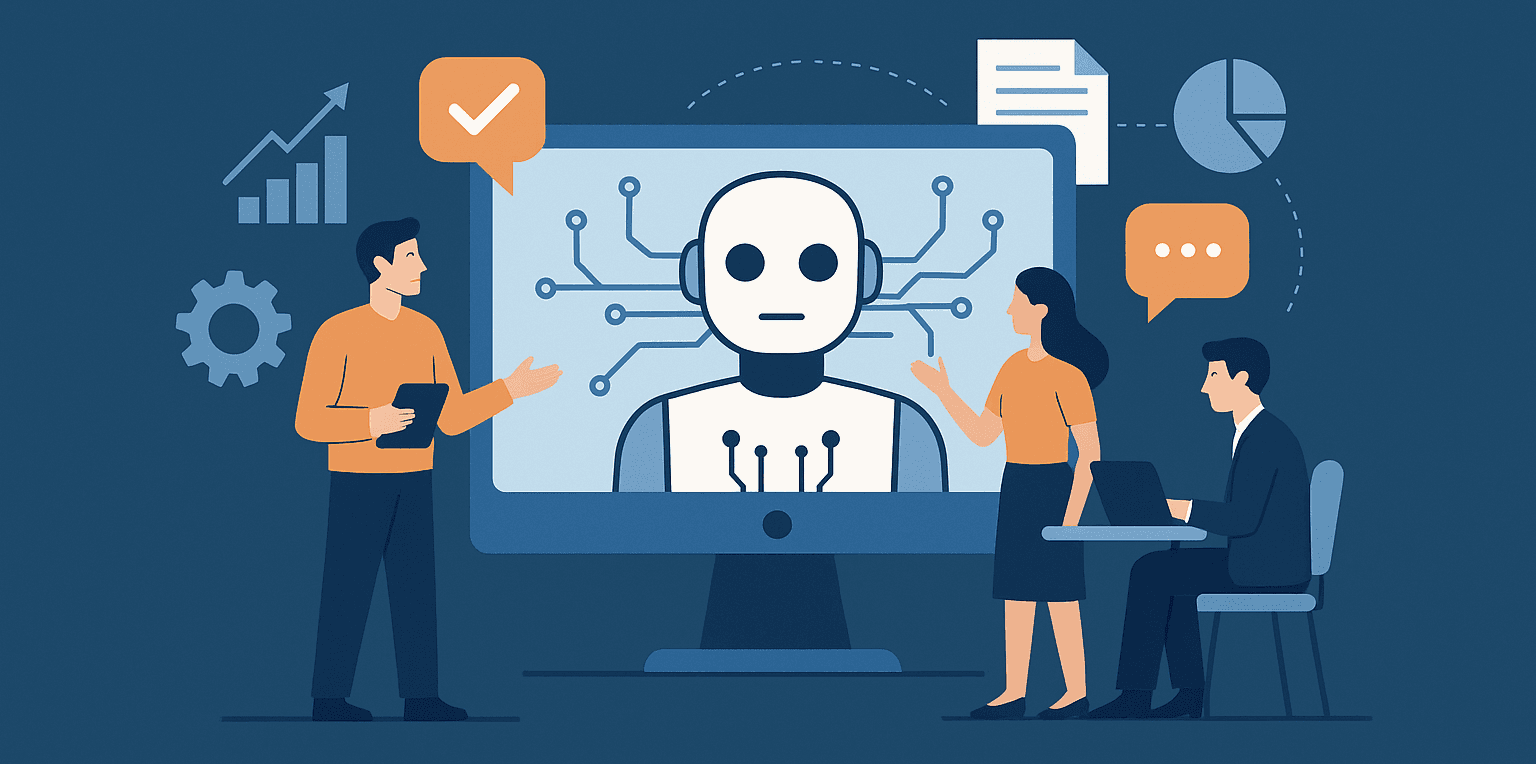Achieving Measurable ROI with AI Agents
Unlock efficiency, boost revenue, and gain a competitive edge by strategically implementing AI agents in your business operations.

Introduction: The AI Agent Advantage
In today's fast-paced digital landscape, staying competitive requires leveraging cutting-edge technology. AI agents – intelligent software entities capable of autonomous action and learning – represent a paradigm shift. They move beyond simple automation, interacting dynamically with environments (digital or physical) to achieve specific business objectives, from streamlining workflows to revolutionizing customer engagement.
Integrating AI agents isn't just about technological novelty; it's a strategic imperative offering tangible benefits: automating complex tasks, delivering hyper-personalized customer experiences, driving data-backed innovation, and optimizing operational efficiency at scale.
Navigating the Challenges in AI Agent Deployment
While the potential is immense, successful AI agent implementation requires navigating several common hurdles:
- Data Foundation (Quality & Availability): AI agents are data-hungry. Success hinges on access to large volumes of clean, relevant, and unbiased data. Challenge: Integrating disparate data sources securely.
- Seamless Technology Integration: Merging AI agents with legacy systems can be complex, often demanding significant IT infrastructure adjustments and robust API development.
- Bridging the Skills Gap: Effective deployment and management require specialized talent in machine learning, data science, and AI ethics – skills often in high demand.
- Ethical Guardrails & Privacy Assurance: Handling sensitive data necessitates stringent adherence to privacy regulations (like GDPR, CCPA) and transparent, ethical AI practices. Concern: Avoiding algorithmic bias.
- Fostering User Acceptance & Trust: Overcoming skepticism among employees and customers regarding reliability, job security, and data usage is crucial for adoption.
- Designing for Scalability: Solutions must be architected to handle increasing loads and evolving business needs without performance degradation or exponential cost increases.
Evaluating the ROI Potential: Beyond the Hype
Assessing the potential Return on Investment (ROI) for AI agent projects requires looking at both quantitative and qualitative impacts. Key drivers often include:
- Cost Savings & Efficiency Gains
- Revenue Growth & Upselling Opportunities
- Enhanced Customer Experience (CX) & Retention
- Increased Productivity & Focus
- Error Reduction & Compliance
- Scalability & Agility
- Strategic Insights & Foresight
Methodologies: Measuring What Matters
Quantifying the success of AI initiatives requires robust measurement frameworks:
- Cost-Benefit Analysis (CBA): Systematically compares total expected costs against total expected benefits. Focus: Justifying the investment.
- Return on Investment (ROI) Calculation: The classic formula ((Net Profit / Total Investment Cost) * 100). Focus: Financial efficiency.
- Payback Period: Calculates the time required for benefits to equal investment. Focus: Risk assessment.
- Total Cost of Ownership (TCO): Encompasses all lifecycle costs. Focus: Long-term planning.
- Key Performance Indicators (KPIs): Tracks specific metrics aligned with goals (CSAT, completion time, error rates). Focus: Operational impact.
Best Practices for Maximizing AI Agent ROI
To ensure your AI agent initiatives deliver optimal returns, adopt these best practices (highlighted separately below for emphasis):
- Align with Core Business Objectives
- Choose High-Impact Use Cases
- Prioritize Data Quality
- Design for Scalability
- Ensure Seamless Integration
- Monitor & Optimize
- Foster AI Literacy
- Manage Change Effectively
- Uphold Ethical Standards
- Measure & Communicate ROI
Real-World Impact: Case Study Snippets
E-commerce Personalization
A major online retailer uses AI to analyze behavior for hyper-personalized recommendations. Result: Illustrative 12% increase in AOV & 7% lift in conversion rates.
Automated Customer Support
A SaaS provider deploys AI chatbots for Tier-1 queries, 24/7. Result: Illustrative 25% reduction in resolution time & 40% query deflection.
Predictive Supply Chain Analytics
A manufacturer uses AI to forecast demand and optimize inventory. Result: Illustrative 18% reduction in stockouts & 10% lower holding costs.
Note: Case study results are illustrative examples representing potential outcomes.
Conclusion: Seizing the AI Opportunity
AI agents offer a powerful toolkit for transforming business operations and achieving significant ROI. While challenges exist, a strategic approach focused on clear objectives, quality data, robust measurement, ethical implementation, and continuous optimization unlocks immense value.
By learning from best practices and real-world successes, organizations can harness the power of AI agents to not only improve their bottom line but also build a foundation for sustained growth and innovation in an increasingly intelligent world.